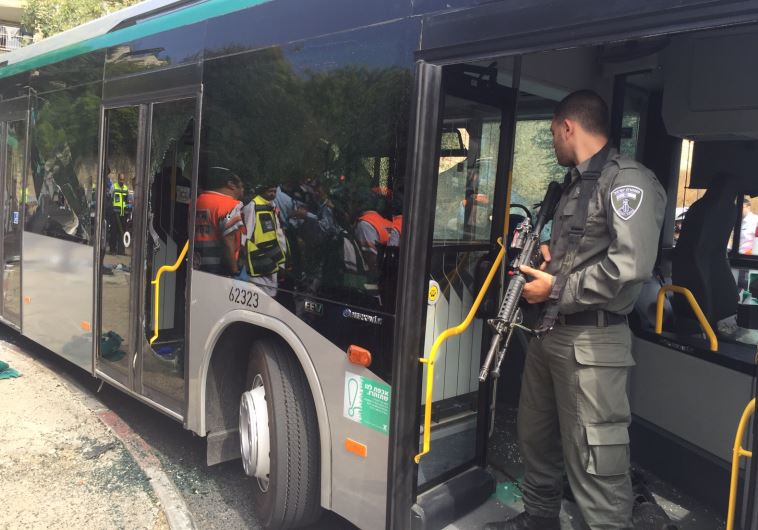‘I can’t live like this anymore’
Following 2 more brutal murders in Armon Hanatziv, one woman living in the embattled neighborhood demands change.
 Scene of stabbing and shooting attack aboard a bus in the capital's Armon Hanatziv (photo credit: ISRAEL POLICE)Updated:
Scene of stabbing and shooting attack aboard a bus in the capital's Armon Hanatziv (photo credit: ISRAEL POLICE)Updated: